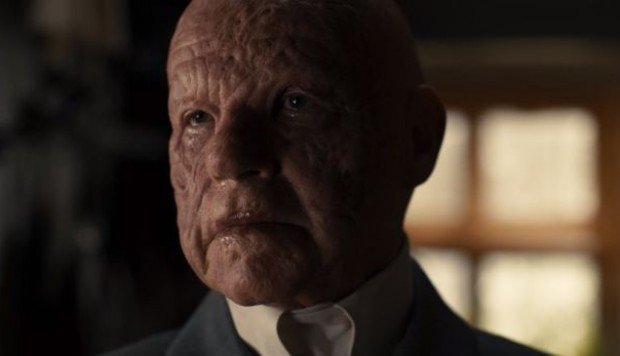DARK II: WHAT PLEASING TO SEE YOU AGAIN - TV REVIEW
For those of us who insisted on reading Netflix's synopsis about his series and movies, it was a pleasant surprise last year to start watching Dark and notice that he only shared with Stranger things the fact of having a missing child and a forest. And I don't say it because the Upside down series is not the best that the platform gave us, but, really, Dark is on another level.
In his synopsis, Netflix forgets to mention the heart of his first series of German origin, which drives fans crazy for good (enthusiasm) and for bad (much to think about): time travel. The series co-hosted by Baran bo Odar and Jantje Friese is a party for the great topic of science fiction, and its dark tone, announced without subtlety in the title, gives it the aura of existential horror / horror that we sometimes need so much.
In the first season all the intrigues had been raised that little by little revealed what this story was about, the young Jonas Kahnwald (Louis Hofmann) received strange documents about his father and the boy Mikkel Nielsen (Daan Lennard Liebrenz) disappeared in a Strangest cave in the middle of the forest. These two kicks began the endless connections between the families of the town, while the spectators watched on screen mysterious characters perform actions that did not seem to be directly linked to the plot. Thanks to the masterful work of editing and editing, the story began to make sense, ominous of course, and we could mentally assemble those maps with photos and names so typical of the police genre.
Then, intrigue, mystery (fantastically reinforced by music), different eras, a sensational cast that helps to draw the relevant family trees. We were before the story of a group of characters through time, but not a linear, traditional one, but a flexible one full of paradoxes. And here one of the most interesting things: much of what we knew about time travel is something we had to review: the temporary paradox explodes our heads when we see the characters meet themselves at different times. And then, despair: it seems that nothing can be done to correct or modify the course of time. They and we found ourselves in a horrifying temporary loop from which you cannot escape.
The end of the first one also left us with a new discomfort: we had gone to different points of the past, but the series left us with a Jonas "falling" in the future. I don't know how we endure a year to keep watching Dark. But everything has a reward: the second season continues to dazzle with a very correct script, compact, neat, which allows us to accompany these characters with few words that, like us, try to understand what happens. This second season is one of meetings, many of the issues that had been left open in the first start to close and the characters are linked more concretely: with the certainty that time travel is as likely as any other phenomenon of the nature.
The question that goes through this entire second season is related to what the characters ask themselves, who are they? In the first era, where are they? Now that they know it - they are at a random point of time although they could be in another - the constitution of their identities is the real intrigue to solve. How does Jonas become that old man, how Claudia Tiedemann (Julika Jenkins) to the "crazy" of time, how Elisabeth Doppler (Carlotta von Falkenhayn) to her important role in the future? One answer seems to be that this identity does not respond so much to the temporal factor as to linking, and then they are through time according to what relationship they have had with the rest of the characters in this complex plot. But there is another, more disturbing and interesting: identity seems to be related to the need to make the same mistakes. And those mistakes respond to the true villain of history, not the mysterious priest (Noah, Mark Waschke), nor time: desire.
There is no free will and time is a trap because the characters succumb to desire over and over again, no matter where they are in the timeline. And here the series becomes existential at levels to which Netflix does not have us very accustomed and, the truth, it is appreciated. Likewise, if we do not want to see Dark from such a philosophical depth, if we want to ignore other existential conflicts that it raises, such as the parent / child relationship and the impossibility of maintaining a bond through time, or questions about love, trust, the own and the group, we can also enjoy a great story. Not only continues to entertain, this second season leaves us at the end with curiosity intact and the need to go back, think about what we just saw, and start speculating for the third. I think we are facing a phenomenon similar to Lost, a work of science fiction that although massive has a very high quality, so I hope it does not disappoint in the end and that they do not “stretch” it more than the account. Anyway, and the series is making it clear, the thing never ends, because "The end is the beginning, and the beginning is the end."


Congratulations @alej! You have completed the following achievement on the Steem blockchain and have been rewarded with new badge(s) :
You can view your badges on your Steem Board and compare to others on the Steem Ranking
If you no longer want to receive notifications, reply to this comment with the word
STOPTo support your work, I also upvoted your post!
Vote for @Steemitboard as a witness to get one more award and increased upvotes!